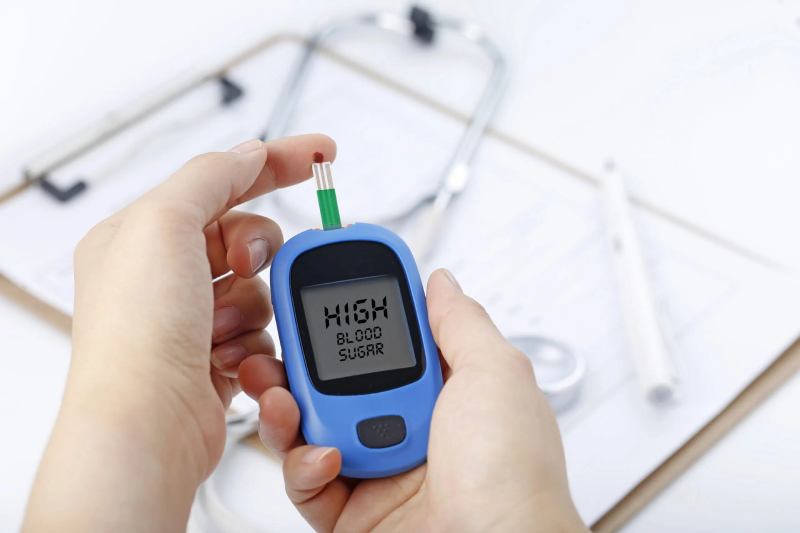Living with diabetes requires constant vigilance and proactive management. While regular blood sugar monitoring and medication adherence are essential, a comprehensive check-up goes beyond the basics. This guide delves deeper, equipping you with valuable tips to optimize your diabetes management during your regular healthcare visits.
Understanding Your Diabetes Type
The first step is understanding the specific type of diabetes you have. Here’s a breakdown of the common types and their implications for check-ups:
- Type 1 Diabetes: This autoimmune condition requires lifelong insulin injections. Check-ups should focus on insulin management, monitoring for complications, and ensuring adequate insulin supplies.
- Type 2 Diabetes: This often lifestyle-related form can be managed with diet, exercise, medication, or a combination. Check-ups should focus on these lifestyle factors, medication effectiveness, and comprehensive complication screenings.
- Gestational Diabetes: This temporary form develops during pregnancy. Check-ups monitor blood sugar control and fetal well-being. Discuss post-pregnancy diabetes risk with your doctor.
Preparing for Your Check-up: Proactive Patient Power
Empower yourself by being an active participant in your diabetes management. Here are some ways to prepare for your check-up:
- Track Your Blood Sugar: Maintain a detailed log of your blood sugar readings, including the time, food intake, activity level, and any medications taken. This data provides valuable insights for your doctor.
- Monitor Your Diet: Keep a food diary for a few weeks before your appointment to identify potential dietary triggers for blood sugar fluctuations.
- List Your Medications: Prepare a list of all medications you take, including over-the-counter drugs and supplements.
- Prepare Questions: Write down any questions or concerns you have about your diabetes, medication side effects, or potential complications.
- Gather Documentation: Bring any recent test results, lab reports, or hospital discharge summaries to share with your doctor.
Maximizing Your Check-up: A Comprehensive Approach
Beyond the standard blood sugar test, a comprehensive diabetes check-up involves several aspects:
1. Detailed Review:
- Medical History: Your doctor will review your overall health history, including any recent illnesses, hospitalizations, or surgeries.
- Family History: Discuss any family history of diabetes or related complications like heart disease, stroke, or kidney disease.
- Lifestyle Habits: Your doctor will assess your diet, exercise routine, sleep quality, and stress levels. Discuss areas for improvement to optimize diabetes management.
- Medication Review: Review your current medications and discuss any concerns about side effects, dosage adjustments, or potential interactions with other drugs.
2. Physical Examination:
- Foot Examination: A thorough foot exam is crucial. Diabetes can decrease blood flow and sensation in the feet, increasing the risk for infections and foot ulcers.
- Eye Examination (Dilated Pupils): Regular eye exams are essential for detecting diabetic retinopathy, a leading cause of blindness in diabetes.
- Neuropathy Check: Your doctor will assess for signs of nerve damage (neuropathy), which can cause pain, numbness, or tingling in the hands and feet.
- Skin Examination: Diabetic skin can be prone to infections. Your doctor will look for any signs of skin issues like dryness, rashes, or fungal infections.
3. Lab Tests:
- HbA1c Test: This test measures your average blood sugar control over the past 2-3 months. It’s a key indicator of diabetes management effectiveness.
- Kidney Function Tests: Diabetes can damage the kidneys over time. Regularly monitoring kidney function through blood and urine tests is crucial.
- Lipid Panel: This test checks cholesterol and triglyceride levels, as people with diabetes are at increased risk for heart disease and stroke.
- Microalbuminuria Test: This urine test detects early signs of kidney damage from diabetes.
4. Proactive Planning:
- Vaccinations: Discuss your vaccination needs with your doctor. People with diabetes are more susceptible to infections, so staying up-to-date on vaccinations is essential.
- Mental Health Screening: Diabetes can take an emotional toll. Discuss any mental health concerns like depression or anxiety with your doctor.
- Advance Directives: Discussing your preferences for future medical care in case of an emergency is crucial.
Beyond the Doctor’s Office: Ongoing Management
Remember, your check-up is just one piece of the puzzle. Here are ways to maintain optimal health beyond your appointment:
- Self-Management Education: Attend diabetes education programs to learn more about managing your condition effectively.
- Foot Care: Practice daily foot inspection for cuts, cracks, or blisters. Wash your
- feet daily with warm water and mild soap, dry them thoroughly, and moisturize (avoiding toes). Wear comfortable, well-fitting shoes.
- Dental Care: Maintain good oral hygiene to prevent gum disease, which is more common in people with diabetes. Brush twice daily and floss regularly. Schedule regular dental check-ups.
- Stress Management Techniques: Chronic stress can worsen blood sugar control. Explore stress-relieving activities like yoga, meditation, or deep breathing exercises.
- Join a Support Group: Connecting with others living with diabetes can provide invaluable emotional support and offer tips for managing the condition.
Conclusion
By going beyond the basics and actively participating in your diabetes check-ups, you empower yourself to optimize your health. Partnering with your doctor, asking questions, and taking a proactive approach to your diabetes management paves the way for a long and healthy life. Remember, knowledge is your best weapon in combating diabetes. Utilize this guide and its tips to become an active participant in your own healthcare journey.

 Diabetology2 weeks ago
Diabetology2 weeks ago
 Diabetology2 weeks ago
Diabetology2 weeks ago
 Diabetology1 week ago
Diabetology1 week ago
 Diabetology1 week ago
Diabetology1 week ago
 Diabetology1 week ago
Diabetology1 week ago
 Diabetology2 weeks ago
Diabetology2 weeks ago
 Diabetology1 week ago
Diabetology1 week ago
 Diabetology2 weeks ago
Diabetology2 weeks ago








